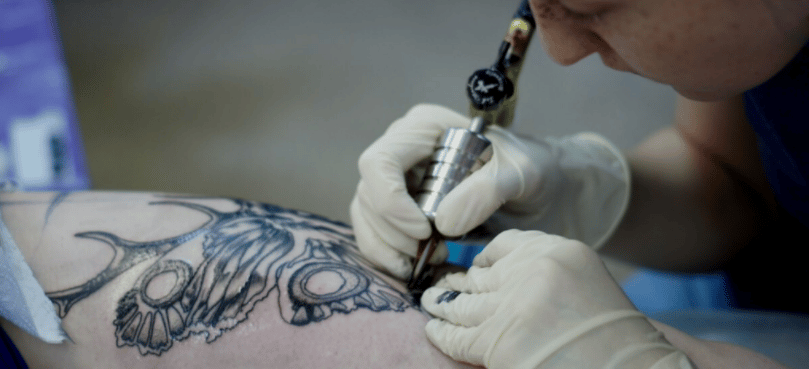Becoming a nurse can be a rewarding career that allows you to take care of others and reach your personal goals. However, it requires the right education and hard work to get you through school and on track to become a nurse. Whether you want to become an ER nurse or have a specialization that allows you to work in an office setting, you’ll need to come up with a plan. Becoming a registered nurse (RN) is a great point of entry into the growing field, allowing you to get valuable experience and start to discover your interest to determine if you should choose a specialization. However, becoming an RN requires you to have a passion for caring for others and learning medicine. Have you ever wondered what it takes to become a nurse? You’ve come to the right place. Here’s everything you need to do to accomplish your dream.
Earn a Degree
To become a nurse, you need a nursing degree. Your courses will teach you everything from basic life-saving skills like CPR to how to draw blood and care for patients. Luckily, becoming an RN only takes two years in school in an accredited nursing program. However, if you want to do all your education at once and give yourself a better opportunity to make more after graduation, you may also choose to get your bachelor’s degree and begin a specialization if you’ve chosen one. Which degree you need will depend on the type of nurse you want to be, and you might have to spend more than two years to complete the program.
In most states, you only need an associate’s degree in nursing to become an RN. However, more states are requiring you to hold a bachelor’s degree to practice and obtain licensure. Even in states that don’t have a legal requirement, employers may ask that you have a bachelor’s degree because it means you spent double the amount of time in college studying medicine.
Nursing career
Ultimately learning your BSN is the best thing you can do to kickstart your nursing career, but it’s not always necessary, especially if you don’t know if you want to commit to a life-long career. Instead, you can get your associate’s degree and begin working as an RN to gain valuable experience before you put a considerable amount of money and time into your bachelor’s degree.
You can get a BSN in a few ways. If you’re starting college for the first time, it’s typically easiest to just do the whole four years at once to get it out of the way. However, if you already have an associate’s degree, you can do an RN to BSN nursing program that requires less time than four years of study. Additionally, if you have a bachelor’s degree in another field of study, you can take accelerated programs so you don’t have to take the same core classes again.
Pass Your Licensing Exam
After you’ve completed your degree, you’ll be required to get licensed before you can start looking for work. The NCLEX exam is the licensing exam for nurses that tests your knowledge in the field to ensure you’re prepared for the job. To get your state license, you must pass the exam. Luckily, if you don’t pass the exam the first time, you can retake it 45 days later, giving you enough time to study.
If you want to ensure you pass the exam on the first try, consider enrolling in a program that has a high NCLEX pass rate. Some colleges may publish this information, or you can call them up and ask. While this number doesn’t exactly tell you how good a school is, it can help you determine if it’s the type of school worth your money. Ultimately, the higher the pass rate, the better your chances of success.
Also Read – From Runway to Skyway: A Roadmap to Becoming an Air Hostess
Get Your License
Once you pass your exam, you can obtain your nursing license from the state where you’ll practice. If you want to have the option to work in multiple states, you can get a license in any state you want, and some may even allow you to practice with your current state license. Of course, each state has its requirements, so don’t move anywhere without understanding what those requirements are to ensure you can get a job wherever you go. There are many exciting travel nursing job opportunities available for those who are willing to explore new places and help patients in need.
Get Advanced Training
Once you get your license, you are officially a registered nurse. However, that doesn’t mean that you’re stuck as a registered nurse forever. Depending on what you want out of your career, you can choose a specialization that allows you to focus on one area of medicine. For example, you can become a plastic surgery nurse, pediatric nurse, or oncology nurse, depending on your interests. Many of these types of nursing careers require additional certifications, which means more schooling. However, you won’t have to relearn what you already know. Instead, you’ll build upon your current knowledge to learn about a specific area of medicine and get more specialized nursing jobs, which tend to pay more.
You may also choose to get an advanced degree to become a nurse practitioner, which allows you to become a primary care physician and see patients as a doctor would. However, you’ll need a master’s or doctorate to do this. Any more education that you have can increase your chances of a higher salary, so you might choose to become a registered nurse and work while taking classes to help you earn more money in the future.
Becoming Employed as a Nurse
Once you’ve obtained your license, you can start looking for work immediately. You may need additional certifications and training depending on where you want to work. However, you can also look for jobs based on your current licensing, allowing you to find a job as soon as possible after you pass your exam. Of course, if you plan to continue your education, that can help you beat the competition when it comes to more specialized careers with the potential to earn more money as you learn more about the medical field.
When you’re ready to begin the job hunt, you’ll go on interviews just like everyone else looking for work. Take what you’ve learned from your schooling to impress potential employers and make them want to hire you. Remember, a nurse must develop more personal relationships with patients, so you should have great people skills.

















Leave a Reply